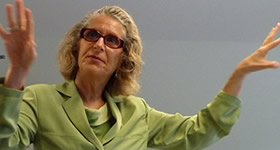Two colleagues sent me a personal email about my March 13 post… And what each of them said was so lovely….
C. grew up in a multilingual family and participated in multilingual experiences. Here’s what she said: “The sayings I used in English could not be translated…but the emotions could be.” C. goes on to talk about her work, saying that she watches different families living together… “It is so interesting to see the same values expressed differently!”
D. told me she’d recently returned from a trip to South America. “All of the locals we met also spoken English – and apologized profusely if it wasn’t perfect.” But D. noted that the people in her travel group complained about the food. She went on to say: “I get so frustrated by the arrogance of American travelers and their unwillingness to even learn basic phrases before they travel to a new country. How much effort would it take to be able to say hello, good bye, please and thank you… just a few words that would go so far to acknowledge another culture?”
To recognize the emotions of others. To share emotions with others.
To acknowledge another culture. People often refer to one’s “mother tongue.” The language of one’s mother…the language of one’s motherland…the language of one’s culture.
To recognize and respect that people experience life differently… Life is different if you are a woman or a homosexual or poor or black or white or hispanic or or or…
How terrible to be all the same. How terrible to only know one kind of experience. How awful to not feel empathy. What a limited life.

